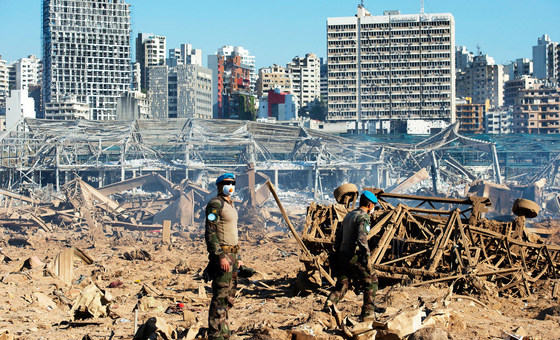Beirut Explosion: UN Warns Of Lebanon Humanitarian Crisis
The World Food Programme said the damage to Beirut’s port would interrupt food supplies and push prices up.
The World Health Organization said the health system was seriously damaged, with three hospitals out of action.
Meanwhile, Lebanese President Michel Aoun rejected calls for an international investigation into the explosion, and said local authorities would examine whether it was triggered by “external interference” such as a bomb.
The leader of the militant Hezbollah movement, Hassan Nasrallah, also denied allegations that it had stored weapons or ammunition at the port.
The government has said the blast was the result of the detonation of 2,750 tonnes of ammonium nitrate that had been stored unsafely at the port for six years.
The decision to keep so much explosive material in a warehouse near the city centre has been met with disbelief and fury by many Lebanese, who have long accused the political elite of corruption, neglect and mismanagement.
Before Tuesday’s explosion, 75% of Lebanese were in need of aid, 33% had lost their jobs, and one million people were living below the poverty line.
WFP spokeswoman Elisabeth Byrs told reporters in Geneva that the organisation was concerned the severe damage to Beirut’s port – the largest in the country – could limit the flow of food supplies and push prices beyond the reach of many.
The WFP was sending 5,000 food parcels that would be enough to feed a family of five for a month, and was planning to import wheat flour and grains, she said.
Christian Lindmeier of the WHO meanwhile warned that Lebanon’s hospitals were overwhelmed with the patients, some were damaged and some non-functional, and that 500 beds had been lost.





